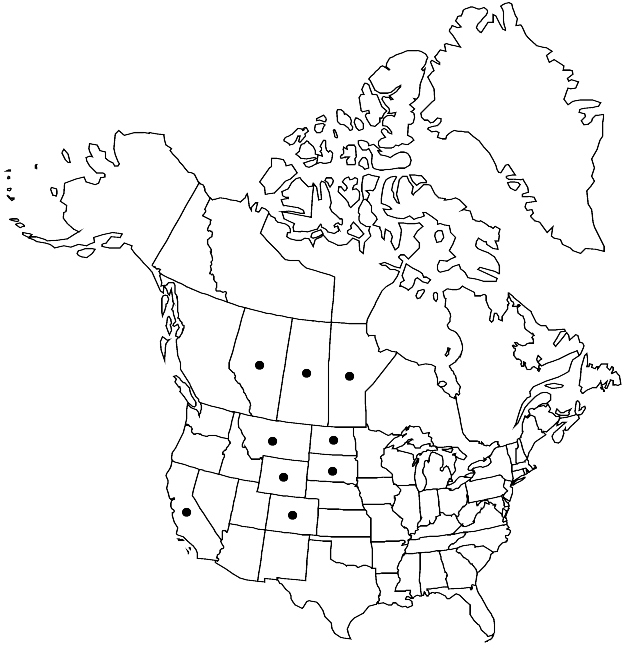Difference between revisions of "Camelina alyssum"
Index Seminum (Zürich) 1906: 10. 1906.
FNA>Volume Importer |
FNA>Volume Importer |
(No difference)
| |
Revision as of 22:55, 16 December 2019
Annuals or biennials. Stems unbranched or branched distally, 2–7(–10) dm, glabrous or pubescent basally, trichomes branched, minute. Basal leaves often withered by anthesis. Cauline leaves: blade lanceolate, narrowly oblong, or linear-lanceolate, pinnatifid or sinuate-dentate, (1.5–)2.5–7(–10) cm × 2–10(–20) mm, base sagittate or strongly auriculate, margins usually coarsely dentate to lobed, rarely entire, apex acute, surfaces glabrescent or sparsely pubescent, trichomes primarily forked. Fruiting pedicels ascending to divaricate, 15–30(–40) mm. Flowers: sepals 2–4.2 × 0.7–1.5 mm; petals pale yellow, (3.5–)4–6.5 × 1.5–2 mm; filaments 2–3.5 mm; anthers ca. 0.5 mm. Fruits depressed globose, 7–11 × (5.5–)6.5–8(–9) mm (almost as long as wide, or longer), apex subtruncate or, rarely, rounded; valves each with prominent midvein, margin obscurely or narrowly winged; style 1.2–2.5 mm. Seeds reddish or yellowish brown, (1.8–)2–3 × 0.7–1 mm. 2n = 40.
Phenology: Flowering May–June.
Habitat: Fields, roadsides, prairies
Distribution

Alta., Man., Sask., Calif., Colo., Mont., N.Dak., S.Dak., Wyo., Europe, introduced also in Australia.
Discussion
As indicated by R. L. McGregor (1985), Camelina alyssum is known from the above states only from old collections, and, apparently, the species has not been collected again during the past five decades. Although we have not examined all of his cited specimens, those on which the Missouri and Nebraska records are based belong to C. sativa.
Selected References
None.